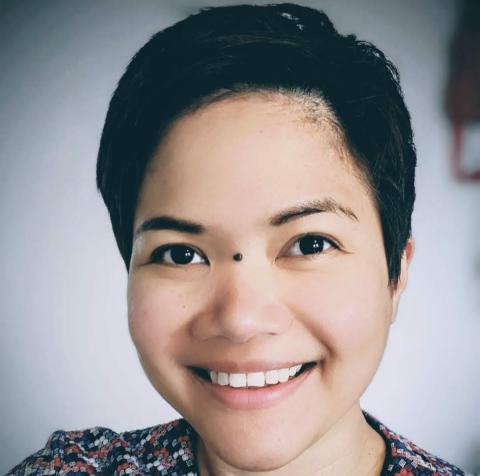“Can business contribute to a green recovery?” new podcast series asks
Image from mackaycartoons.net
UN SDG:Learn launched the second SDG Learncast podcast series, "Businesses for the SDGs". The series features learning and sustainable development experts on small- and medium-enterprises (SMEs) and big companies in high-income and developing countries. Why are businesses important in achieving a sustainable future, and what can future entrepreneurs do today to contribute to green and resilient economies tomorrow?
SMEs are no small player in the global economy. They account for about 90 per cent of businesses and more than 50 per cent of employment worldwide. In the Organisation for Economic Co-operation and Development (OECD) area, they account for 99 per cent of all businesses. SMEs play a major role in delivering growth that is more inclusive and whose benefits are shared more broadly. It is important to ensure that they remain competitive, resilient, and sustainable.
A resilient business is a competitive business
This was one of the messages in the SDG Learncast episode, 'Is there a future for MSME in Developing Countries after Covid-19?'. Raphaël Dard, Head of the SME Trade Academy of the International Trade Centre, highlighted the need for SMEs in developing countries to be resilient to remain competitive, especially in times of crisis. An International Trade Centre survey that examined the Covid-19 impact among businesses in 136 countries showed that 60 per cent of micro-businesses and 57 per cent of small businesses were strongly affected by the pandemic, compared to 43 per cent of large firms. The resilience of businesses was one of the factors to influence companies' survival during the crisis. For example, during COVID-19, only 16 per cent of resilient companies reported laying off employees, compared to 76 per cent of companies with a lower index of resilience. The episode provided MSME's – specifically women-led and youth-led businesses that were hardest hit during the pandemic – with vital lessons on resilient recovery and the green economy.
"Empowering the green recovery is recognizing the fact that during this pandemic, we've had to deal with a short-term crisis. The climate crisis is a long-term one and, for some, one that not everyone can see the urgency to do something about it. Take this opportunity of the COVID-19 to think again about your business model and look at the green economy and the potential of sustainable development for setting up a new business. Adapt your business and make it more sound and able to cope with future issues and be an engine to the solution," Raphaël Dard highlighted.
The whole team must take sustainable development to heart
One thing that is critical for business owners to contribute to a sustainable future is owning the responsibility and taking sustainability to heart. William Overbosch of the Ubiquity University encouraged business owners in his episode to sit down with their team to talk about what sustainability means to them and assess their business context.
"If you're operating a restaurant, it might mean buying local. If you're operating a retail shop, it might mean buying different products that are produced sustainably. If you're operating a consultancy firm, it might mean giving everybody a card for public transportation, minimizing your carbon footprint and making sure that people have a work-life balance. So, sustainability, in every sector, in every region of the world means different things."
Employers' role in addressing the sustainability gap and the skills gap
Businesses are not only called to address the sustainability gap. They have a responsibility in addressing the skills gap, together with governments, employers organizations, and employees. Businesses employ billions of people and have an essential role in achieving sustained, inclusive, and sustainable economic growth, full and productive employment, and decent work for all, as highlighted by Goal 8 of the sustainable development goals (SDGs).
The episode 'Understanding the skills gap and the sustainability gap – and what employers can do about it', Robert Marinkovich and Akustina Morni of the International Organisation of Employers shared their insights on bridging the skills gap and sustainability gap.
"It's really important to look at the skills aspect of your future workforce. That way, you can be more prepared, and you can adapt faster to the fast-changing business landscape. You can join organizations that can influence government policymakers to invest in the right sectors. The notion of lifelong learning could be better formulated at the national level," Akustina Morni said.
Robert Marinkovich encouraged businesses to consider running a business that is 100 per cent sustainable. "If you go through the exercise in your head, you will realize that it is easy to create a business that is a hundred per cent sustainable today. At the end of the day, the inputs that you need to run a business will be having some effect on the environment, whether it be the energy that you consume or the emissions that are behind the materials of your products. Those materials can be a hundred per cent sustainable."
About SDG Learncast
SDG Learncast is a podcast series by UN SDG:Learn, a United Nations initiative aiming to bring relevant and curated learning solutions on sustainable development topics to individuals and organizations. UN SDG:Learn is coordinated by UNSSC and UNITAR. Questions and suggestions? Email joint.secretariat@unsdglearn.org.
